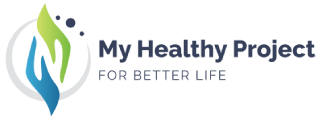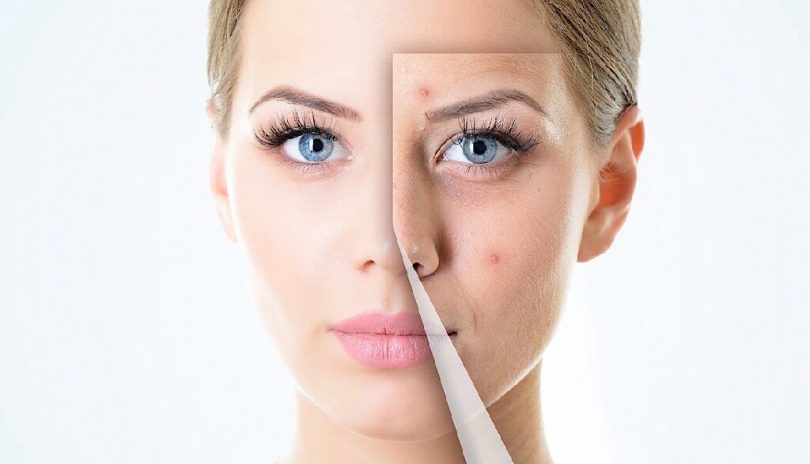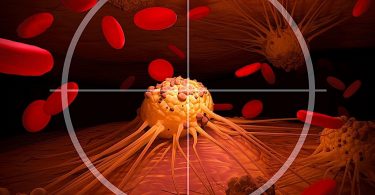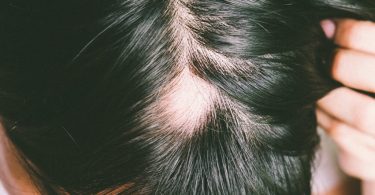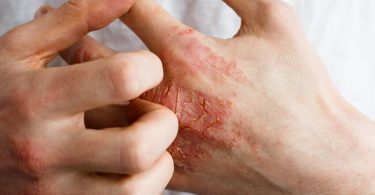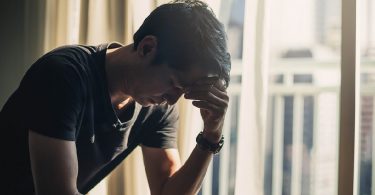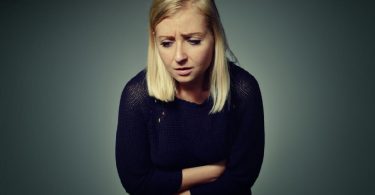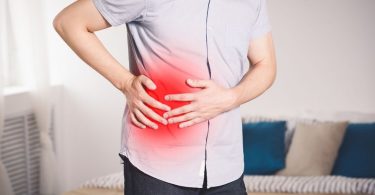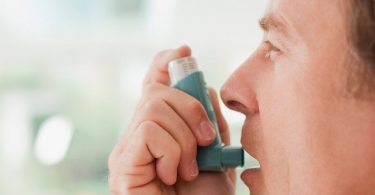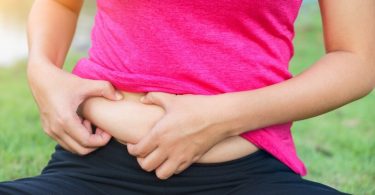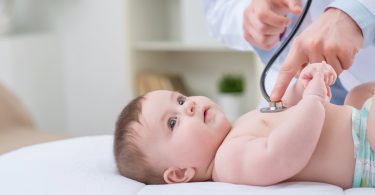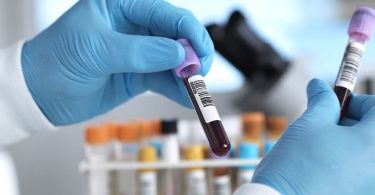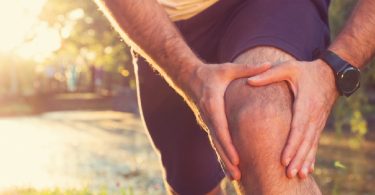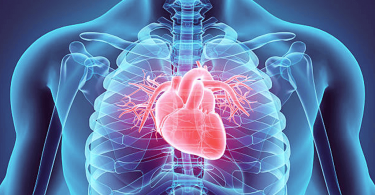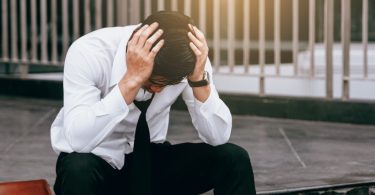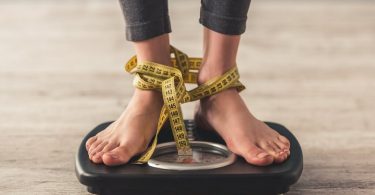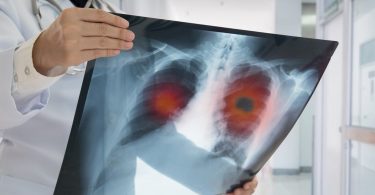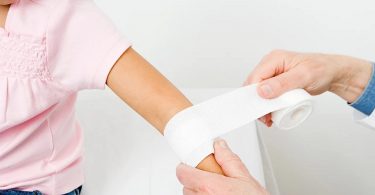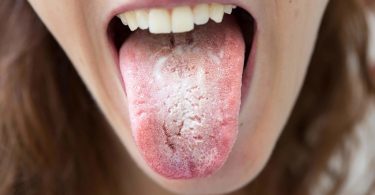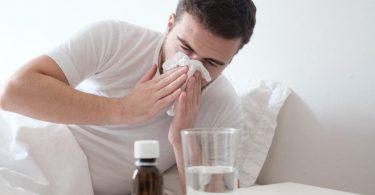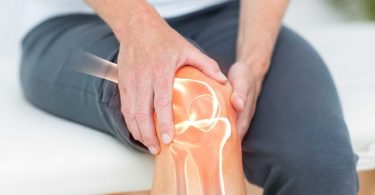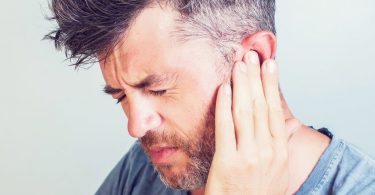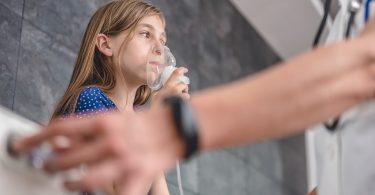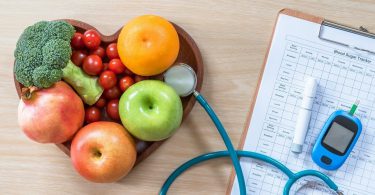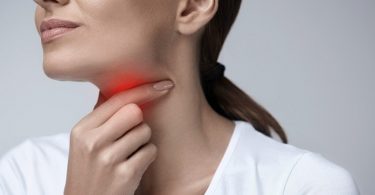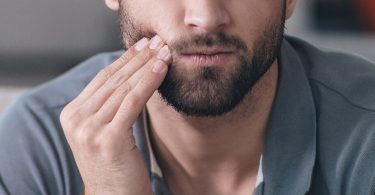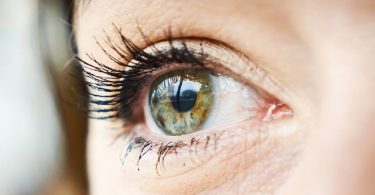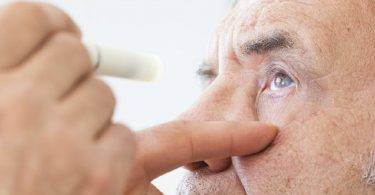Acne is an unsightly skin disorder that is particularly common in adolescence. A quarter of adults would also suffer from it. Its treatment requires certain precautions. In this article, We will talk about acne causes, symptoms and treatment.
Contents
Acne definition
Acne is a common and unsightly skin disorder. 80% of adolescents have it. This skin lesion affects also a quarter of adults (especially women) are also affected by this skin lesion.
Mild forms of acne can sometimes go away on their own, without treatment. The more severe forms generally leave scars because the lesions caused are deep.
Acne causes
This skin lesion is due to skin changes and proliferation of a bacterium ( Propionibacterium acnes ) in the pilosebaceous follicle (hair and sebaceous gland).
In adolescents, puberty causes an increase in the production of sex hormones. This phenomenon stimulates the sebaceous glands which then secrete in excess an oily substance which lubricates the epidermis: sebum. We speak of hyperseborrhea (oily skin). When this sebum does not disappear normally, a comedo (small ball characteristic of this skin lesion ) is formed.
The role of male hormones in the appearance of acne (in women, these are the ovaries and adrenal glands) is no longer to be demonstrated, but it is also possible that the origin is genetic, medicinal, food, linked to stress, lifestyle …
Acne symptoms
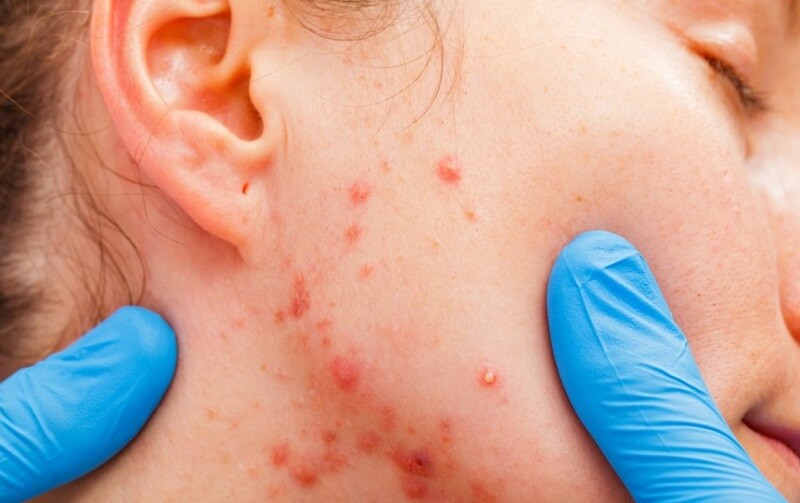
This skin lesion retentional results in the appearance of closed comedones (whiteheads or microcysts) and open comedones (blackheads). They are most often found on the face (at the forehead, nose and cheeks), on the neck, shoulders, chest and back.
Other lesions can coexist with comedones: papules (red, firm and painful pimples), pustules (larger elevations) and nodules, which correspond to inflammatory acne .
The late acne is that of an adult. In women, it is localized on the lower face and the neck, under the ears, and is rather inflammatory. We should be consult a doctor to rule out any hormonal disturbances. In men, acne is rather localized in the upper back.
In toddlers, there is neonatal acne, infant acne and infant acne.
The lesions are deep and often infected in more severe forms. Acne conglobata is a severe form of acne that brings together fairly large nodules and cysts (a fibrous shell is present).
The acne fulminant is a rare form when the acne young patient , has a high fever, joint pain and muscle diffuse, brutal extension of the lesions, which become very inflammatory, ulcerated, crusted and painful. The evolution is slow and the scars, in general, very marked.
In all cases, a medical consultation is recommended in order to benefit from appropriate treatment and expert advice.
Acne prevention councils
To prevent the appearance of this skin lesion , it is recommended to avoid the factors favoring skin lesions:
- makeup that smothers the skin;
- aggressive or insufficient cleaning of the skin;
- the sun, which by rebound causes a high production of sebum;
- the tobacco…
It’s important to :
- clean your skin every day with a mild soap and rinse well;
- do not pierce or remove blackheads yourself, or manipulate the lesions (these actions could cause infection of the hair follicle and potentially serious complications).
In women, certain contraceptives can worsen or, on the contrary, improve acne . It is essential to consult your gynecologist or your treating physician in order to choose the most suitable contraceptive method.
Acne exams
Before prescribing anti-acne treatment, the dermatologist takes into account:
- the age of the person (adult acne is often more tenacious);
- the age of acne;
- the type of lesions and their severity;
- previous treatments;
- the impact on daily life.
In adults, it is possible to confuse acne with rosacea (advanced rosacea which is accompanied by pimples). Hormonal assessments then confirm the diagnosis of acne .
Acne treatment
Before any type of acne, medical monitoring is essential. The management of acne has evolved following several controversies around certain drugs.
The treatment against acne are generally very long (months or years).
Different treatments depending on the severity of acne
In case of mild acne
Local or topical treatments (in gels or creams) are preferred. They can be based on benzoyl peroxide or retinoids derived from acidic vitamin A. It is necessary to associate them with correct skin hygiene with gel or dermatological soap cleansing.
In moderate to severe acne
Local treatment is combined with taking oral antibiotics (doxycycline or lymecycline) to prevent the multiplication and activity of the microbes that cause the infection. They are generally well tolerated, but sun exposure should be avoided as there is a risk of photosensitization.
Only as a second intention and after failure of other treatments, isotretinoin (derived from vitamin A) can be used. But its prescription is very limited due to its side effects .
In resistant acnes
Doctors prescribe isotretinoin in very severe forms or with risk of scar. A strict regular follow-up must be ensured by the doctor because serious side effects (psychological disorders in particular depressive) are possible. Contraception is compulsory for young girls because of the risk of fetal malformations during pregnancy.
And Diane 35?
This anti-acne medication that has contraceptive properties hit the headlines in 2013 . Today, this hormone treatment, which combines ethinylestradiol and cyproterone acetate, is only prescribed if acne is associated with signs of hyperandrogenism or hirsutism, and that it persists despite the treatments. previous.
In case of scars
To remove excessively visible scars, professionals practices a different aesthetic techniques : peeling, laser , creams, surgery, etc.
Homeopathy
While waiting to consult a dermatologist or treating physician, homeopathy can relieve the symptoms of acne .
For example:
- when the pimples are painful: Eugenia jambosa 9 CH, 3 granules three times a day;
- against pustules: Kalium bromatum 9 CH, 3 granules three times a day;
- to fight against blackheads: Selenium 9 CH, 3 granules three times a day;
- when purple scars occur: Antimonium tartaricum 9 CH, 3 granules three times a day.
Phytotherapy
The use of herbal medicine is possible during acne.
You can choose one of these applications:
- in infusion : millefeuilles leaves and flowers. Put 30 g in 1 liter of water, let infuse for 10 minutes. 1 cup in the morning on an empty stomach and 1 in the late afternoon, in courses of 20 days per month;
- as a decoction : burdock with severed fresh roots. Put 50 g in 1 liter of water, bring to the boil for 15 minutes. 2 to 3 cups a day, 5 days a week;
- in local application : plantain fresh crushed leaves. Apply cold on acne regions;
- in local application : lavender fresh leaves. Put 100 g in 1 liter of white alcohol vinegar, let macerate for 10 days in a covered container and in the dark; on the tenth day, filter. Use this preparation diluted in water, in compresses to apply locally on acne regions. At least once every day, if possible before bedtime;
- in infusion then in local application : wild pansy flowers. Put 30 g in 1 liter of water, leave to infuse for 10 minutes, filter. Apply locally on compresses in acne areas.
Aromatherapy
Apply a drop of pure tea tree essential oil on each acne pimple morning and evening, after washing.
Naturopathy
To prevent the formation of acne pimples:
- avoid sweets and fatty foods because they prepare the ground for the development of microbes at the origin of pimples;
- favor fruits and vegetables;
- avoid excess coffee, tobacco and alcohol.
